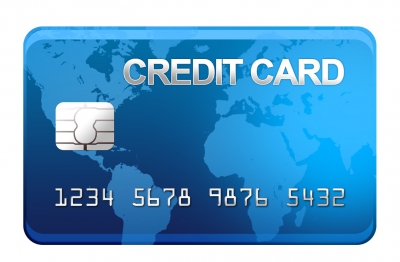Data leaks will always occur. It is quite possible that your home address and email address would be exposed to identity kidnappers or other cybercrooks.
You better rely on yourself in this matter. A great way to avoid data leaks is to minimize the scope of personal information that you put into Network, sometimes using an old good method of evading questions, diversions or keeping a low profile.
We have selected several tricks that will help staying in the world wide web with maximum anonymity.
Protection against data leaks Ξ Use temporary email addresses
Create one email address exclusively for friends and relatives. Create another address for mailing lists, give aways and other online services.
Some people even use the third email address for social networks. Also you can use a new email for every new registration you do.
There are several advantages in using different emails for each service you subscribe. Firstly, if you get spam or exposed to fraudulent actions on one of email accounts, you can draw a conclusion that the service you subscribed to is either being hacked or sold your information to spammers. You could also take action and unsubscribe from the service. Secondly, if cybercrooks got one of your accounts they would be able to get data only from one service that you were subscribed to (via a simple function ‘Remind password via email’).
Protection against data leaks Ξ Use one-off credit card numbers
 Some banks and issuers offer their clients one-off credit card numbers. You can go to their web-site and generate online a new, one-off credit card number that will be useless for data thieves.
Some banks and issuers offer their clients one-off credit card numbers. You can go to their web-site and generate online a new, one-off credit card number that will be useless for data thieves.
(Never use debit card in the Network since the money are withheld directly from your account and you will have only 48 hours to inform the bank about the fraud.)
Protection against data leaks Ξ Use distinct password for each account
No doubt, that it is difficult to remember a password for each account but allowing the browser to do it for you is not safe at all. If your computer is under threat, passwords are easily accessible and your accounts might be hacked.
Some web-browsers allow encrypting passwords and create master password for Credential Locker.
However, it is better to subscribe to one of many password management services that would better manage this function.
It should be added that having different passwords for different accounts is not enough. A password should be difficult to guess. If you use "facebook_password" for Facebook or "twitter_password" for Twitter – it doesn’t look like protection.
You could think of a sentence like: "I’m the best writer on this planet". Then take its initial letters: "ITBWOTP". Then replace letter "O" with 0 (null) and you get "ITBW0TP". It is quite easy to remember. You could easily add up other symbols to make the passwrod even more difficult to guess.
Protection against data leaks Ξ Do not provide personal information
In reality no one needs to know your mother’s maiden name or your place of birth. You can mention correct year of birth to pass age check but better be careful disclosing the day and month of your birth.
It also concerns information that you publish in social networks. It would be easy for hackers to search through Facebook or MySpace to steal your personal data.
If in the process of registration you are prompted to set a security question, like ‘mother’s maiden name’, then you could do as requested. Mention that your mother’s maiden name is, for example, Michael Jackson.
It doesn’t matter whether it is true or false. Main thing is that you know the answers and hackers – don’t.
Protection against data leaks Ξ Never give document numbers
Do not tell you passport or ID’s number or other identifying documents. Exclusions may include employer, spouse and accountant. Such information is not required for standard operations.
Such data is often used for security reasons of some services, in case you forgot password, and sometimes as an element of identification over the phone (for example, during a conversation with your bank’s official). It is unlikely that you’d like this information to be in supplier’s data bases that might be hacked by cybercrooks and used for identity theft.
Protection against data leaks Ξ Sometimes you’d have to give out your address
Some companies check credit cards by verifying the name and address. In such case you’d have to mention the real address.
If you buy something in the Internet, perhaps, you’d have to use a real address if you are not ready to spend time and money to rent a PO box.
Anyway, you need to stay alert.
If you installed applications that require permissions (for example, applications for Facebook or Android), think about the following: why the game needs access to SMS services or contact book? There are applications that seem to do nothing harmful, but in the background mode they send information about you, for example, contacts, personal data, emails, etc.



 Protection against data leaks Ξ Data leaks and self-protection
Protection against data leaks Ξ Data leaks and self-protection
